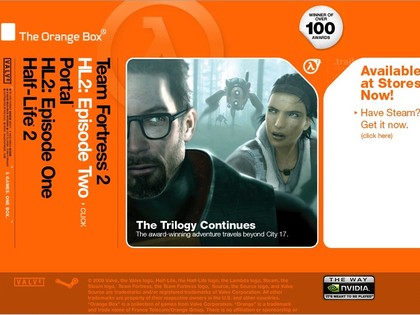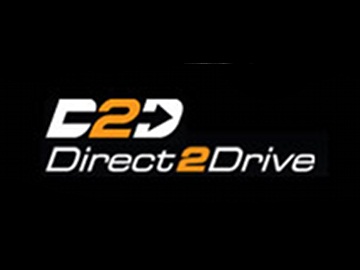Does Steam have an unfair monopoly over PC gaming?
And what happened to Games For Windows Live?
Sign up for breaking news, reviews, opinion, top tech deals, and more.
You are now subscribed
Your newsletter sign-up was successful
If you are not a PC gamer, then you may be wondering what the hell Steam is. (And if you are a PC gamer, you may well be wondering why anybody would want to use anything else).
As well as developing and publishing such heavy-hitters as Half-Life, Counter-Strike and Left 4 Dead, Steam is Valve's real jewel in its gaming crown. It is the PC market's leading platform for digital game downloads and online play, with over 25 million registered members right now. An impressive number, and one which is surely set to get a serious boost when millions more Mac gamers come online later in April.
Valve now considers Mac to be what it calls a "tier-1" platform. Additionally, a new feature called Steam Play will allow gamers to play the same game on a Windows PC and a Mac for no added cost.
And while many PC gamers still scoff at the mere idea of using a Mac for playing games, Valve's latest announcement is clearly major news for the future of gaming on home computers. If nothing else, legions of casual gamers on Macs will finally realise why the rest of us have been banging on about Half-Life for the last 10 years…

APPLE GAMING: Mac fans finally get Steam access this month
Valve co-founder Gabe Newell told gaming site Videogamesdaily.com back in 2007 that he didn't think Apple had "ever taken gaming seriously… None of the things developers ask them to do are done. And as a result, there's no gaming market there to speak of."
That's obviously no longer the case. Whether it be the raging success of the iPhone and the iPod touch in the gaming market or whether it be down to other plans from Apple's Cupertino HQ that we are not yet privy to, Apple is now a serious player in the games industry. And it is clear that Steve Jobs wants a slice of the gaming pie.
Sign up for breaking news, reviews, opinion, top tech deals, and more.
A classic monopoly?
Steam doesn't have what any well-trained economist would identify as a classic monopoly right now, mainly because it still shares the market and retail space with the physical products (ie those boxed games that sit in shelves on shops on high streets – remember those?). It does, however, own around 70 per cent of the PC download market right now. So this doesn't mean some of the ways it's behaving aren't anti-competitive.
"Steamworks definitely could be construed as anti-competitive, as its matchmaking system isn't open and as it feeds people back to Steam," said one rep from a competing PC gaming download service who wished to remain anonymous. "Even [Valve] being a developer and a publisher at the same time means that other developers feel like they could be second-rate citizens (or at best, on the same level as all the indie games on the service)."
Basically the reasons Steam rocks are the reasons why it's anti-competitive – total feature integration, low overheads, a half-decent social network and a huge user base currently affords Valve a huge bargaining power in the PC gaming market. And good on them, too.
"I wouldn't say that it's flawless, though, or that another competitor couldn't come along with better features – just that it's got such a huge market share that, like World of Warcraft, it's highly unlikely anyone will be able to lure them all away," said the aforementioned rep from one of Steam's competing download offerings.

DIRECT2DRIVE: Competing service is giving Valve a run for its money
There is also the issue of open-ness. Direct2Drive isn't to be underestimated in this space, with its sister company GameSpy making active moves recently to embrace open ID platforms, "which puts it in line with wider online trends," says MCV Editor Michael French.
"D2D is the second-biggest of these distribution/service sites, but has tried to make both the commercial and quirky ends of the PC games spectrum meet. Unfairly, people tend to forget about them – but the fact it has grown steadily over the past seven or so years just proves that PC games services can flourish in the face of big rivals."
Current page: What is Steam? Why Mac?
Prev Page Is Valve Steam-rollering the competition? Next Page Microsoft and the developer's view